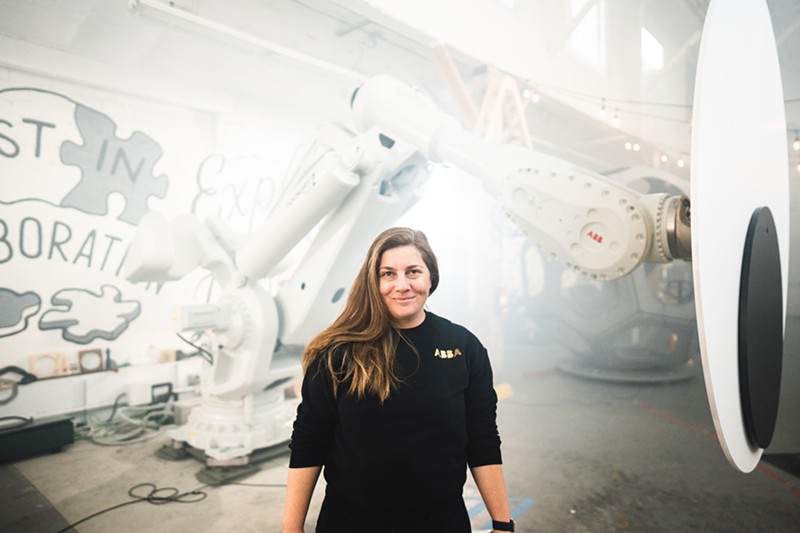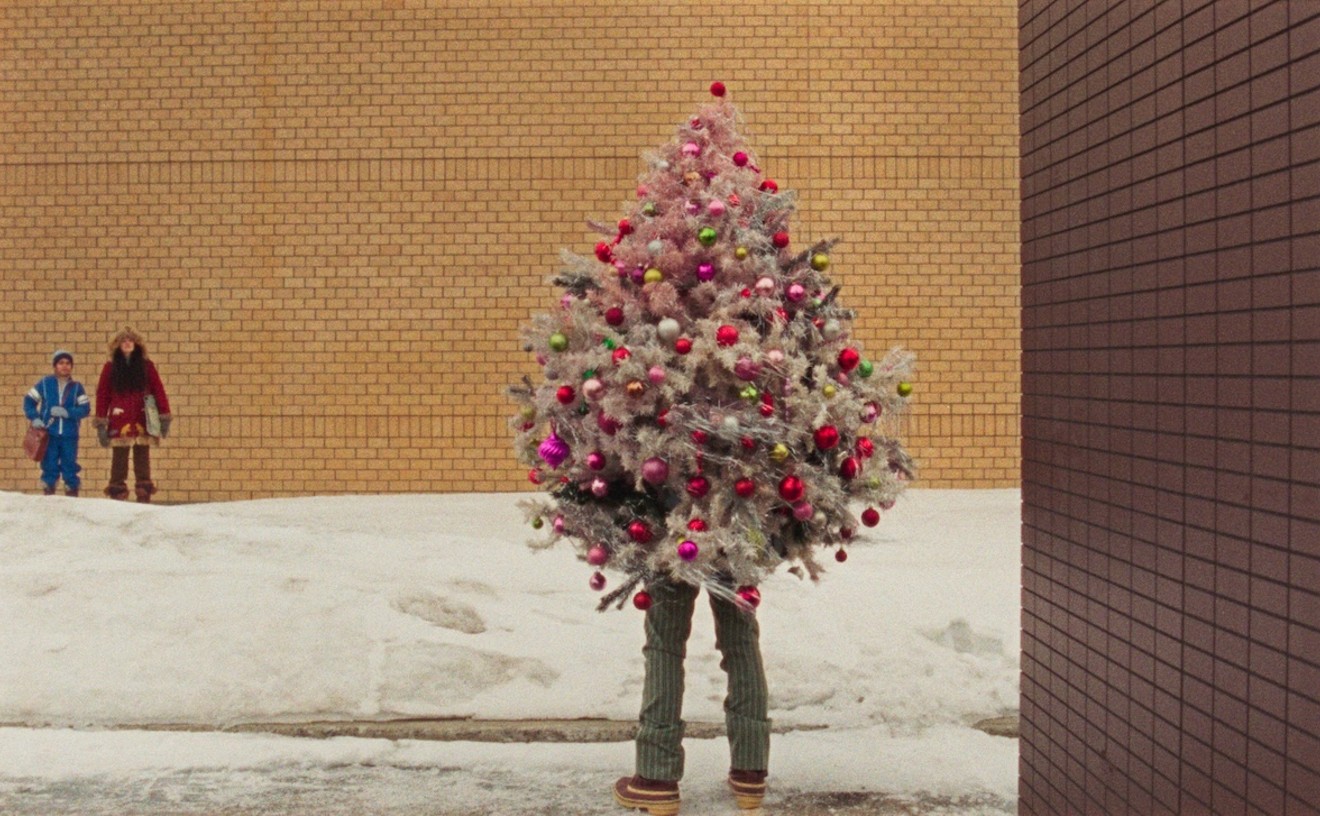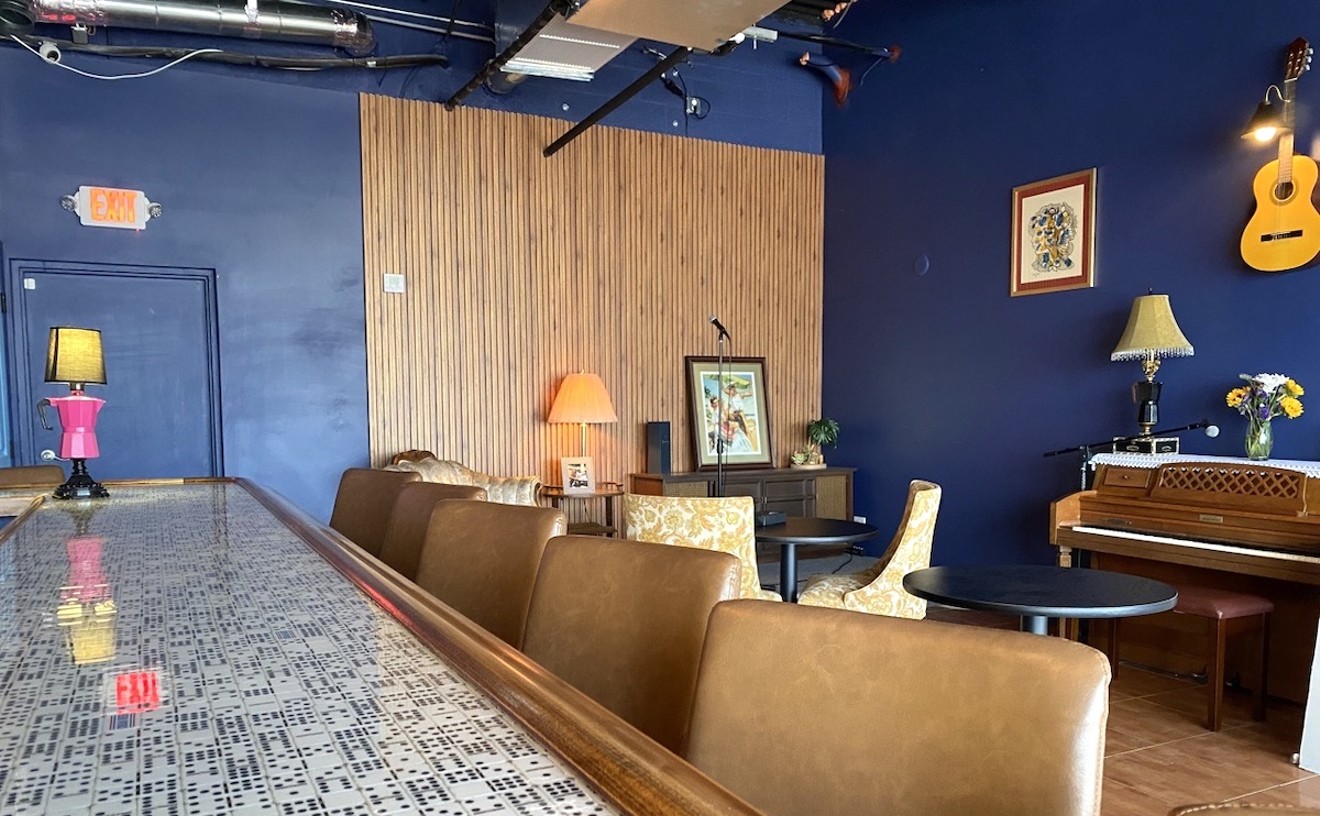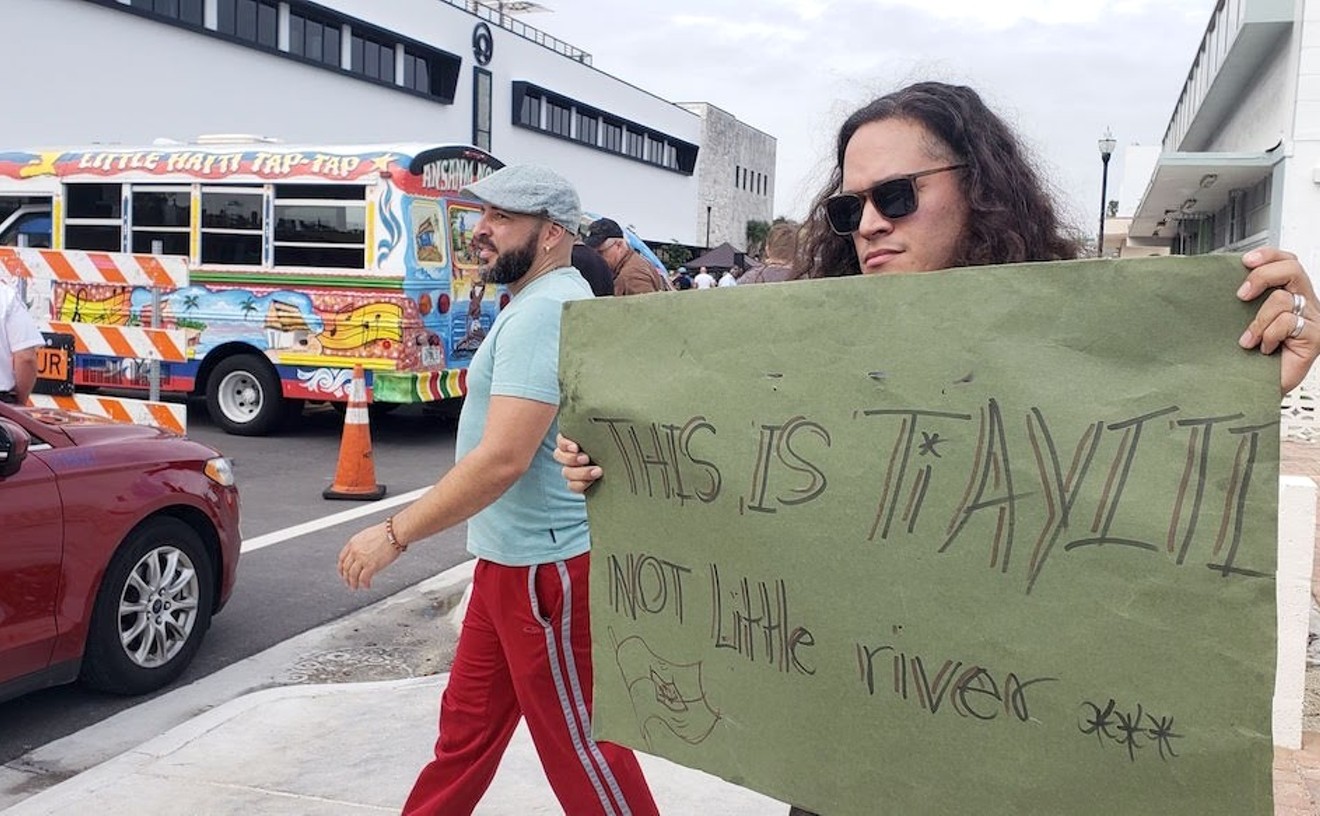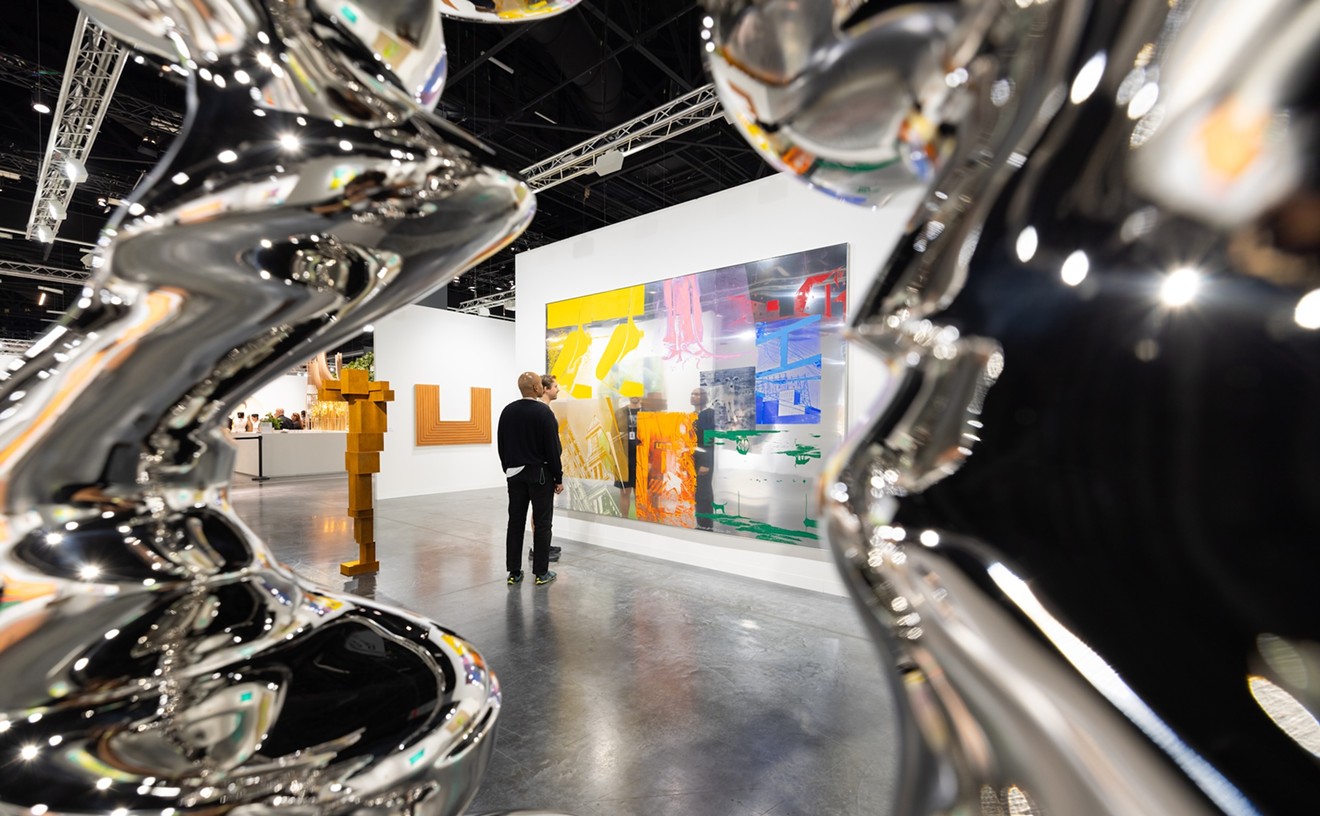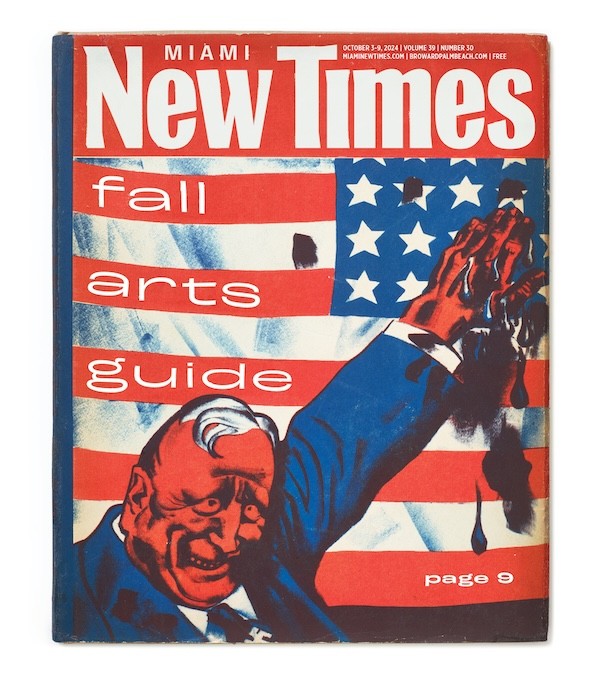According to Oolite Arts digital arts fellow Kelani Nichole, time-based media art is a descriptor perfectly encapsulating contemporary artistic practices that engage technology, as the term honors the performative magic that can accompany our engagement with virtual worlds.
"Every time you engage with a file, there's a performative aspect to it," Nichole says. "When artists engage with technology in critical practice, they're not using technology in the way it was created or intended. They're using it in more subversive ways. They're thinking about reframing and repurposing technology. It's the kind of practice that helps us, as a culture, see the ways that technology is affecting our humanness, all of the implications it's built upon, and the hegemonic power structures that rule it. It's almost like you're seeing the matrix unfold around you."
Nichole kept top of mind the endless possibilities inherent in merging technology and contemporary art as she curated Oolite Arts' Media Art Salon Series, which launches September 13 at 7 p.m. with "Generative Generosity."
The technologist, curator, collector, and exhibition maker who founded experimental media art gallery Transfer called salons — women-led, cultural experiences that have historically served as informal educational opportunities for women — the perfect format for Miami's most curious to learn more about the intersection of art and technology from contemporary artists in the thick of their own processes of creation.
"Salons are a space where you can bring people together with art and create a sense of belonging, welcomeness, softness, and time," Nichole says. "A salon is really about creating that space to be with the work, in this case time-based media art."
During "Generative Generosity," Miami-based artists and thought leaders at the forefront of rethinking the relationship among humanity, art, and technology will share their techniques and works-in-progress with audiences. Jay Mollica, director of digital engagement at the Pérez Art Museum Miami (PAMM), will outline several of the museum's initiatives to give the public access to art through digital spaces. Peruvian interdisciplinary artist Juan Ledesma will present his "Whistling Vessels," sculptural objects that create sound when filled with water, and lead a discussion on the intersection of sound with material culture. Nichole says New York-based artist Daniel Temkin will also share his work in "developing these very beautiful, poetic computer languages, which show us how code can be poetry."

Miami-based artists will share their works in progress and discuss the relationship shared among humanity, art, and technology at Oolite Arts' "Generative Generosity" salon on September 13.
Photo by Andres Gimenez
"Sometimes, I have to put on my engineer hat and tinker with things. When these machines are alive, and they're responding to people in a space like this salon, then I get to sit back and pretend to be Jane Goodall," Gannon says. "I'm just observing how people are reacting to the robots, what these primal connections are. I'll hopefully be able to see some unexpected exchanges that I can incorporate or enhance further."
Gannon is a South Florida native who studied architecture at Florida International University before learning how to program robots at Carnegie-Mellon University in Pittsburgh, a city that she says "has the most roboticists and robot scientists per capita in the world, so even the artists who go there end up playing with robots." Gannon hopes visitors to "Generative Generosity" gain a sense of empowerment after interacting with her work, a feeling that inspires them to join a growing movement marrying arts and technology.
"Ideally, I create something that leaves everyone in a bit of awe, that humbles us to where we're super appreciative of this moment we're alive in. The fact that we can talk to technology, and it can talk back to us, is pretty wild," she says. "Right now, there's a bit of a monoculture around technology, and it's dictated by Silicon Valley. Part of me relocating to Miami, trying to set roots here and help grow this culture of arts and technology, is to invite as many voices from as many backgrounds and as many parts of the planet as possible to weigh in on how this technology should intersect with society because it's going to impact us all."
Nichole says time-based media art, like the practices highlighted in this salon series, echoes the ethos on which the internet was formed: creative freedom and power maintained by the people. It's this fact, she says, that places the art form somewhat at odds with current notions of contemporary art.
"The internet was formed based on this principle of openness. Anyone who has a browser, which, of course, isn't everyone, can view and participate in this data exchange. With the rise of Web 2.0, a lot of our relationships went online. Even if you're not super into internet culture, there are ways that you are, on a daily basis, participating in these open protocols," Nichole explains. "The contemporary art world is all about the opposite of that: scarcity. Only a few artists can be represented. You're typically selling art objects like paintings or sculptures, which are physically scarce objects. Media art is data. It's replicable. It's mutable, it changes."
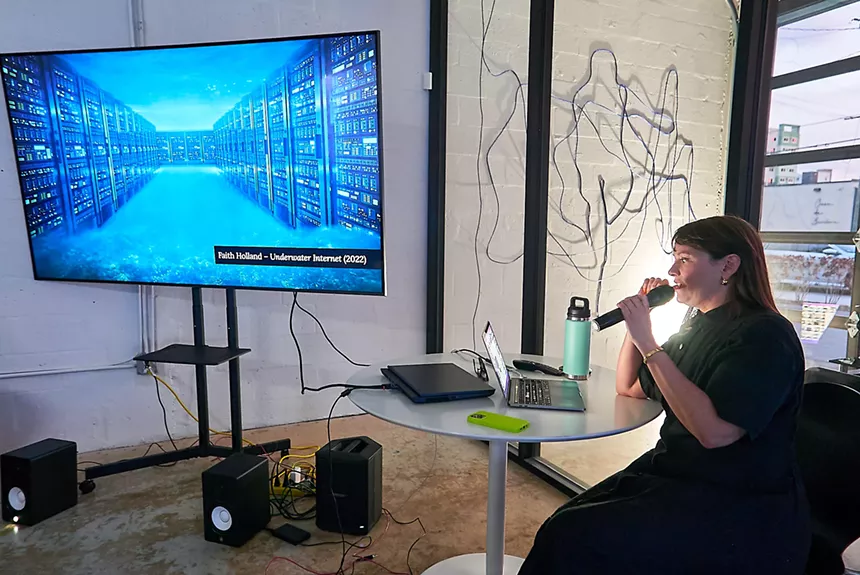
Kelani Nichole, a technologist, curator, collector, and exhibition maker, has explored decentralized networks and virtual worlds in contemporary art for more than a decade.
Photo by Andres Gimenez
Dennis Scholl, Oolite Arts' president and CEO (who will soon step down from his post to focus on his own artistic practice), says the salon series is housed in Oolite Arts' satellite space, a stone's throw from Oolite Arts' future home in Miami's Little River neighborhood. For Scholl, this event series is a critical ingredient to securing Miami's title as a hub and source of inspiration for members of both the arts and technology communities.
"This series makes sure Miami is part of the conversation around this emerging media art practice. Miami has gotten a lot of buzz, especially since the pandemic, for being this tech frontier city, and it's true, but this series shows the same can be said for the arts. With help from the Knight Foundation, we're giving artists at the forefront of these emerging art forms the chance to have their work both fabricated and seen," Scholl says. "This salon series has me thinking about my own practice, too. I'm working on a couple of projects that incorporate technology in creating video assemblage works."
Nichole says the Oolite Arts Media Art Salon Series creates a space where everyone, regardless of their comfort level with emerging technologies, can gather to discuss the myriad ways that our daily existences are affected by technology's rapid advancements. No matter if you're a robotics whiz or a Luddite who can't define an NFT, you're welcome to take part in this series of critical, open-ended conversations.
"I hope this salon is a space where people who're maybe not so comfortable with technology can feel comfortable talking about these ideas: how social media affects us, what we're concerned about with the coming changes of AI, what our opinions are on those things, how we can share differing opinions with each other and what there is to learn in that space in between opinions," Nichole says. "There's going to be a lot of nerdy stuff happening. There's going to be a lot of tech lingo, but there's also going to be a lot to discuss about just being a human in the world and some of the challenges we're all facing in our day-to-day lives."
Oolite Arts Media Arts Salon Series: Generative Generosity. 7 p.m. Wednesday, September 13, at Oolite Arts' Satellite Space, 7297 NW Second Ave., Miami; oolitearts.org. Admission is free with RSVP via oolitearts.org.

